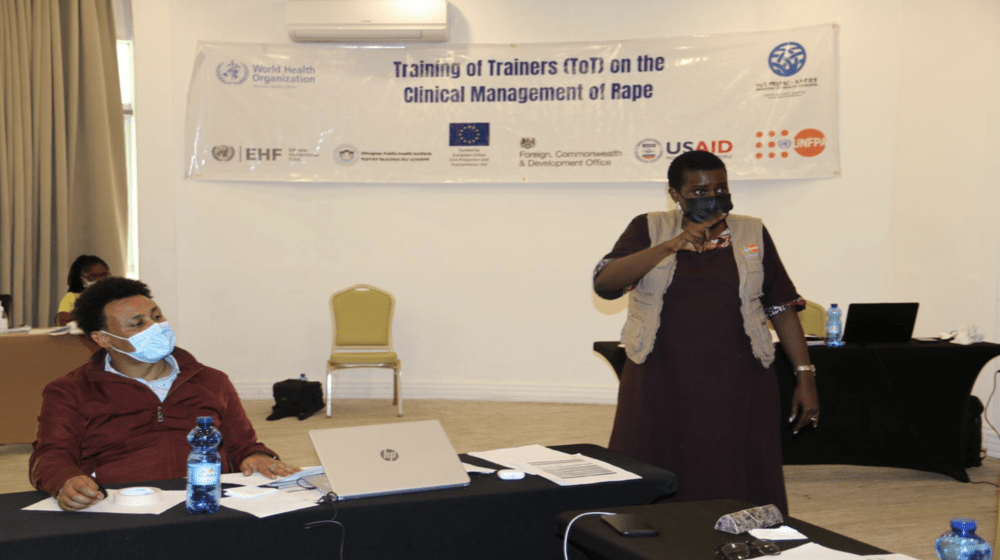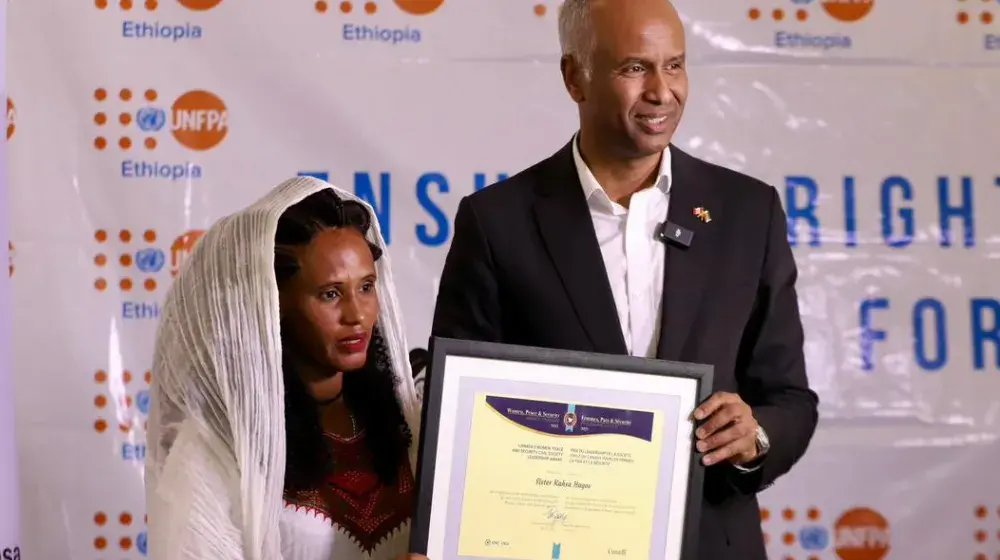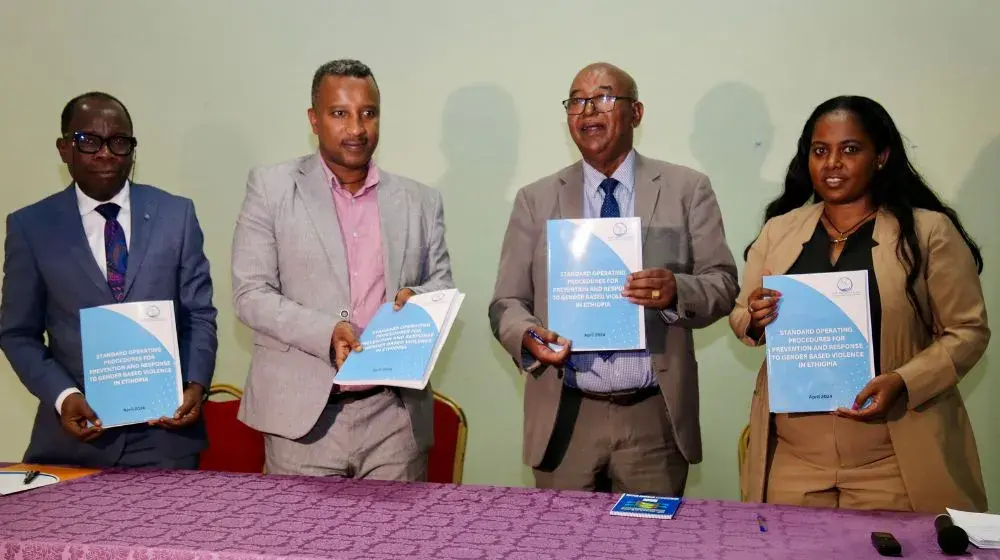WHO, in collaboration with UNFPA, Ministry of Health, and Ethiopian Public Health Institute (EPHI), has launched training on the clinical management of rape for health care professionals.
The training series includes two 5-day training that took place the weeks of 31 January and 7 February 2022 in Addis Ababa aiming to improve the technical capacity of healthcare professionals to provide comprehensive clinical management to survivors of sexual violence and intimate partner violence. A total of 50 healthcare professionals from Addis Ababa, Afar, Amhara, and Oromia regional health bureaus, hospitals, universities, NGOs, and UN agencies were trained at the end of the series. These are health coordinators, medical doctors, clinical officers, midwives, and nurses working in emergencies.
Deputy WHO Representative to Ethiopia, Dr. Nonhlanhla Dlamini, noted, "GBV is a grave human rights violation and remains the most pervasive, most persistent, and the most hidden form of violation. It has lasting effects on survivors, families, and communities and remains an ongoing threat to the health and wellbeing of girls, boys, women, and men.” She further underscored that building the capacity of health care workers to adequately manage and treat survivors of gender-based exploitation and abuse is key to ensuring the recovery of affected individuals and communities and reducing the dramatic economic, social, psychological, and physical effects of the violation.
The first training sessions seek to strengthen the in-country rollout of the revised 2019 Clinical Management of Rape/Intimate Partner Violence (CMR/IPV) training manual developed by WHO in collaboration with UNFPA and UNHCR. The training describes best practices in clinical care for sexual violence and intimate partner violence survivors integrated with mental health and psychosocial support and self-care for healthcare workers. The ToTs will be followed by a series of cascaded training in the three regions where the trained trainers will train 150 healthcare workers at regional level.
As part of WHO's commitment to addressing sexual exploitation and abuse, the training additionally includes sessions on Prevention of Sexual Exploitation and Abuse (PSEA) aiming to better equip health care workers to support efforts to prevent and address sexual exploitation and abuse in humanitarian settings. The training also includes general information adaptable to complex situations frequently seen in humanitarian settings. The main goal is to build fundamental skills, provide guidance, and improve the overall availability of recommended protocols for treating survivors of sexual and intimate partner violence.
Dr Kinfu Manzura, Recovery and Mental Health & Psychosocial Support Team Lead at EPHI, expressed, "I believe the training is timely for healthcare workers. It will strengthen and scale up the GBV services in the country. I appreciate WHO and UNFPA for their support on this."
While gender inequalities and GBV are common in non-emergency settings, conflicts, and natural disasters can exacerbate GBV. A breakdown in social structures, lack of law enforcement, and limited access to health facilities have been shown to increase mental-health-related issues and the risk of exploitation and abuse for women and girls. In conflict-affected regions of Northern Ethiopia, reports show that sexual violence was used as a weapon of war, with women and girls bearing the burden of this crisis disproportionally. As drought continues to affect some parts of the country, vulnerabilities among women and girls, men and boys from the affected populations, increase as they seek alternative coping strategies, including transactional sex.
UNFPA Ethiopia Officer in Charge (OIC), Ms. Esperance Fundira, noted that the training reflects the commitment by WHO and UNFPA to expand access to appropriate, accessible, and quality services for GBV survivors across the country. “It’s critical to strengthen the capacity of health care professionals to deliver high-quality and compassionate clinical, mental, and psychological support and care to GBV survivors while strengthening the public health system. The training is part of this joint effort.”
The training was supported by the Ethiopian Humanitarian Fund, European Civil Protection, and Humanitarian Aid Operations, the United Kingdom Foreign, Commonwealth & Development Office, and the United States Agency for International Development.
For Additional Information or to Request Interviews, Please contact:
WHO Ethiopia:
- Loza Mesfin Tesfaye, Senior Communications Officer
Email: tesfayel@who.int
Tel: +251 911 144 194 (Direct, Whatsapp)
- Alemtsehay Zergaw Gebremichael, Communications Officer
Email: gebremichaela@who.int
UNFPA Ethiopia:
- Paula Fernández Seijo, Communication Specialist
Email: pfernandez@unfpa.org
Tel: +251 935 597 136 (Direct)





